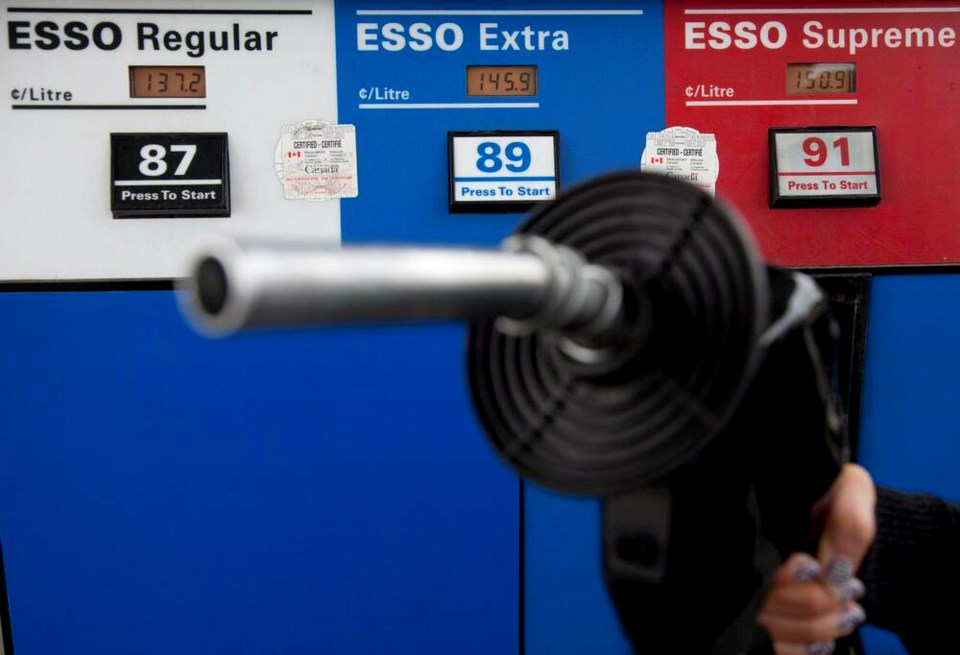The rising cost of living has become part of life since the start of last year when the COVID-19 pandemic hangover hit — a sudden and sustained jump in the prices of goods and services due to a variety of factors.
Adding fuel to the fire, here are some of the scheduled cost of living increases and inflationary pressures that will appear on or around April 1.
Fuel
On Saturday, provincial and federal carbon taxes will rise, leading to an increase in the cost of fuel and other sources of energy. The provincial carbon tax will add three cents to the price of a litre of gas with total carbon tax per year coming to 14.1 cents a litre. The tax increases will also lead to higher costs for aviation fuel that will ultimately be added on to fares. The ÎÚŃ»´«Ă˝ carbon tax is set to increase even further, adding 26 cents to the cost of a litre of gas by 2030.
Beer, wine, spirits and cannabis
On April 1 the federal government will adjust its inflation-based federal excise tax that applies to beer, wine, spirits and cannabis by two per cent. The government had initially said the excise tax would go up by 6.3 per cent, but announced a cap of two per cent after an outcry from the public and industry.
The tax hike has drawn fire from the beer and hospitality industries and others. A majority of MPs recently voted for a non-binding motion that calls on the “government to cancel its April 1, 2023, tax increase on beer, wine and spirits.”
The motion, sponsored by Conservative Leader Pierre Poilievre, passed 170 to 149.
Lettuce
Lettuce prices are set to rise next month and could stay high into the summer. California’s Salinas Valley, that produces most of North America’s leafy greens, has seen severe rain and storms since the start of 2023, which is impacting production. This came after disease struck crops last fall. Early production lettuce from Arizona has filled the gap but as of April when Salinas Valley crops usually take over there will be a four to six-week shortage.
Parking
Municipalities faced with inflationary costs are looking for ways to increase income. Given parking fees and fines comprise a large proportion of municipal revenue, this has become a focal point. Vancouver park board is increasing parking fees across the board. For example, as of April 1 it will now cost $215 for a vehicle or boat parking permit in Vanier Park’s Lot 77 near the Coast Guard station.
Wages
Rising wages are an inflationary pressure, in that more money in the system leads to greater demand for goods and services. It’s a good thing for anyone in today’s economy to get a pay raise, but it’s part of the inflationary cycle. On April 1, the federal government’s minimum wage increases from $15.55 to $16.65 per hour.
“The cost of living is rising, so we’re making sure that wages keep going up too. We’re looking after workers, because that’s how you grow the economy and create more prosperity for everyone,” said federal Minister of Labour Seamus O’Regan.
Many public sector unions in ÎÚŃ»´«Ă˝ have signed collective agreements tied into the rate of inflation.
On March 8, the Bank of ÎÚŃ»´«Ă˝ reported the labour market remains very tight with unemployment near record lows and high job vacancy rates.
Money
On April 12, the Bank of ÎÚŃ»´«Ă˝ will decide whether to increase interest rates as part of its year-long series of rate hikes to help reduce the rate of inflation. Since March 2022 the bank’s overnight interest rate has risen from 0.25 per cent to 4.5 per cent.
A rise in interest rates means that any money you borrow becomes more expensive.
— With files from The Canadian Press



